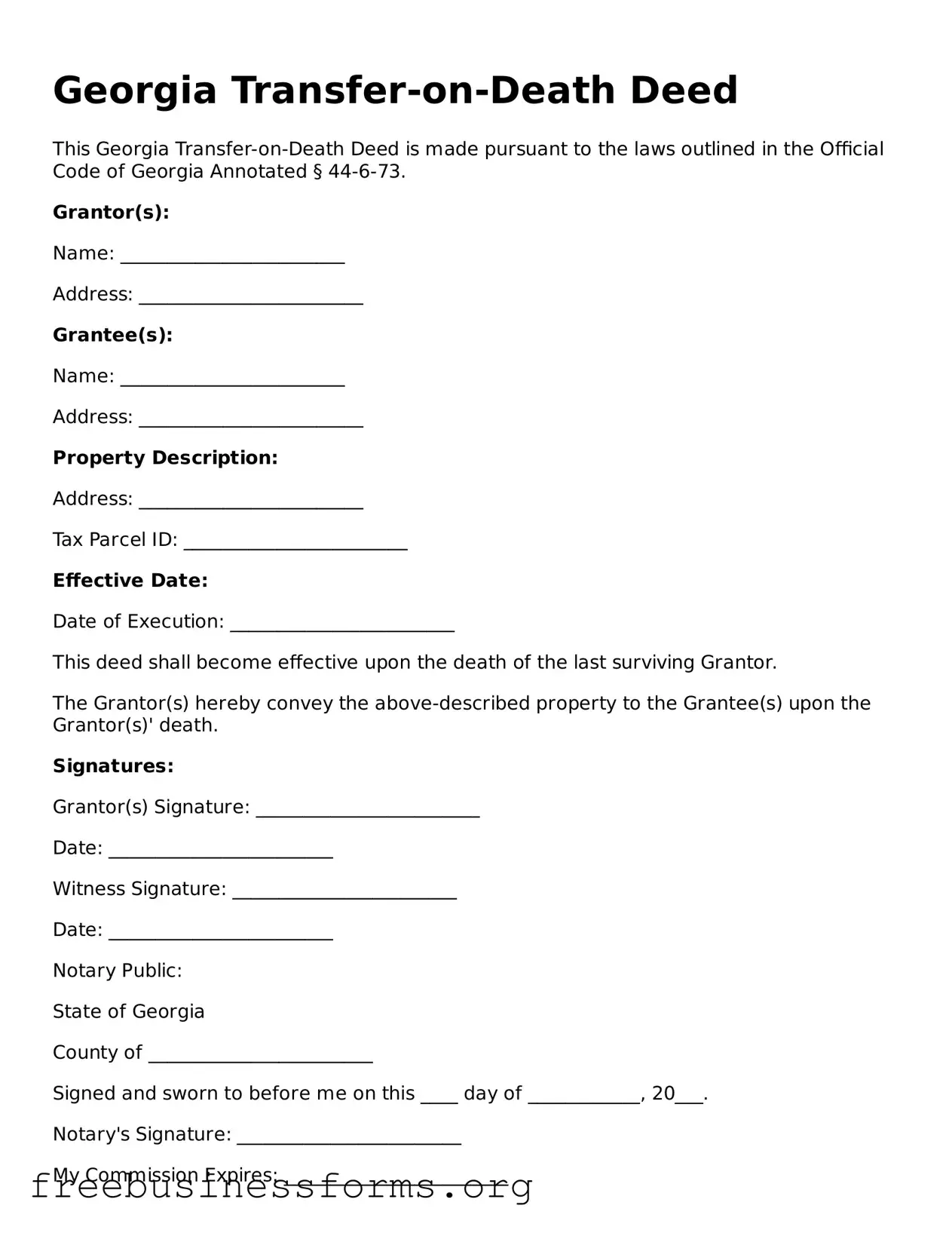Blank Transfer-on-Death Deed Template for Georgia
The Georgia Transfer-on-Death Deed form is a legal document that allows individuals to transfer ownership of real estate to a designated beneficiary upon their death, bypassing the probate process. This tool can provide peace of mind and simplify the transfer of property for loved ones. Understanding its use and implications is essential for effective estate planning in Georgia.
Open Form Here

Blank Transfer-on-Death Deed Template for Georgia
Open Form Here

Open Form Here
or
↓ PDF File
Quickly complete this form online
Complete your Transfer-on-Death Deed online quickly — edit, save, download.